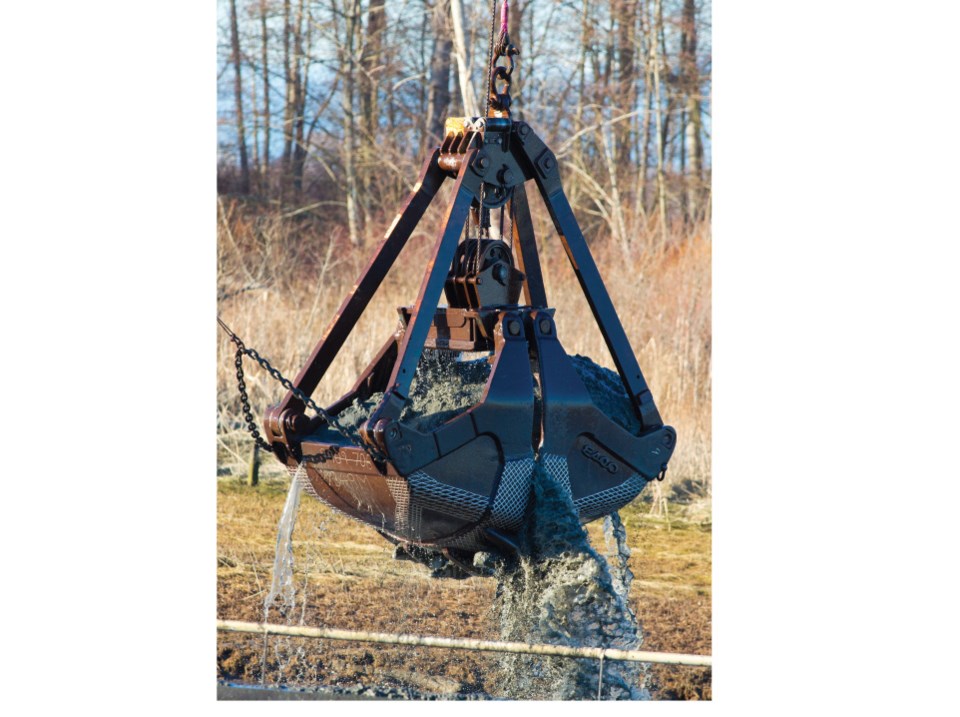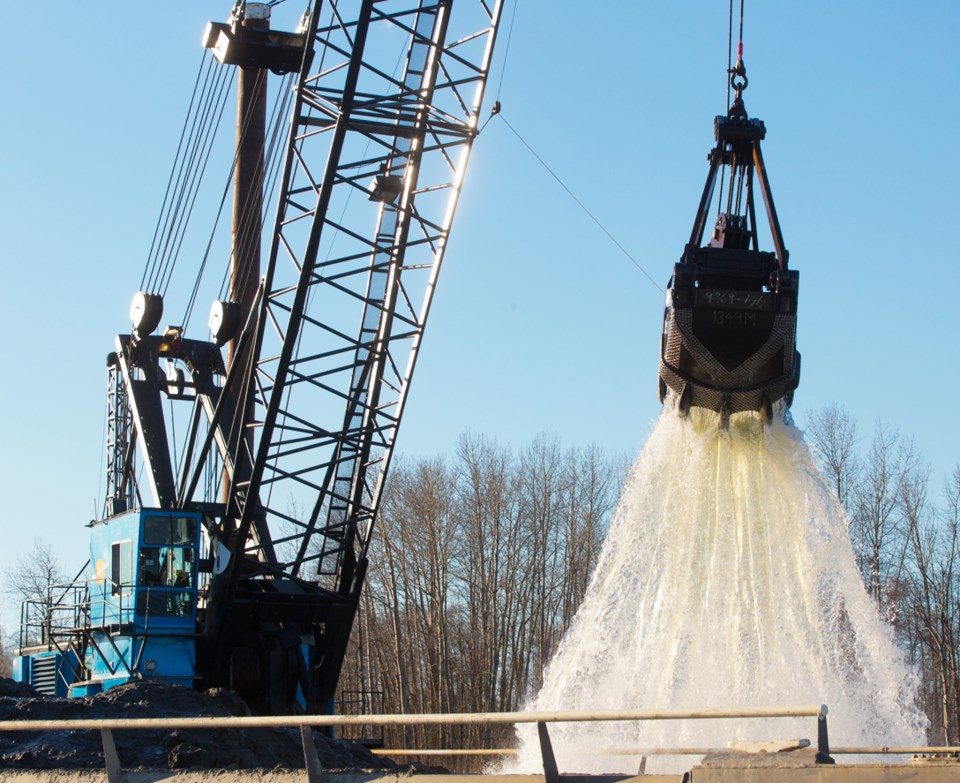A lot of talk and lobbying has so far yielded nothing but frustration when it comes to dredging the local channels of the lower Fraser River.
“There is a great bit of concern from the people who live on the river because the drums are beating that Fraser Port (authority) now feels that they have no responsibility beyond the central channel and everybody is doing the same thing, they’re all pointing to the person next door. If the channels don’t get dredged and start to silt in, we in Canada stand to lose an enormous amount of money….something like $250 million a year in activity,” said Coun. Bruce McDonald during a council discussion on the issue last Monday.
“Somehow we have to come to a resolution that there is consistent funding or, as it was put to me on the phone very forcefully a couple of days ago, ‘let the damn thing silt in and we’ll use it as land.’” he added.
Mayor George Harvie noted it’s going to be a political solution to obtain the much needed funding, adding Delta has even gone straight to Ottawa to request funding so that the money already allocated isn’t wasted.
Coun. Dylan Kruger echoed the frustration, saying there’s been little movement on the issue the past few years.
Back in 2012, Delta entered into a joint $10-million funding program with the province, the port authority and the City of Richmond to dredge channels around Ladner and Steveston.
Work was completed in February 2015. The project was successful in removing 400,000 cubic metres of sediment that was impeding navigation and access through the three most heavily used channels around Ladner. Of the original funding, approximately $1.5 million remains for the channels in Delta.
A staff report notes that a minimum of 107,000 cubic metres of material needs to be removed to return the channels to grade at an estimated cost of $1.7-to-$2.3 million. At most, the remaining funds will allow targeted dredging of “high spots” which will provide temporary relief for channel users.
The report also notes post-freshet surveys taken in September 2017 indicated that the local channels around Ladner were, once again, experiencing significant sediment accumulation at key access points to harbours, marinas and float home communities.

Delta staff say the issue may be better addressed through a broader collaborative effort
“Without regular maintenance dredging, the channels will soon revert back to the same condition that prompted remedial efforts in 2013 to restore local channel navigability and safety,” the report warns.
The report notes the Vancouver Fraser Port Authority is now working to obtain a permit from Fisheries and Oceans Canada to dredge the priority channels of Sea Reach, Ladner Harbour and Deas Slough.
The VFPA's Local Channel Dredging Contribution Program, a 10-year, $7 million initiative, expires at the end of this year with an extension through February 2020 to complete the dredging in Delta channels. There’s no indication that there will be any renewal of the funding or continuation of port support for dredging projects.
“This is of considerable concern for Delta since Ladner Harbour, Sea Reach and Deas Slough will undoubtedly require additional dredging within the next 2 to 3 years to maintain safe navigation,” the report states.
“Delta has been lobbying senior governments for more than 10 years in an attempt to secure funding for maintenance dredging in the channels around Delta. Although the lobbying was successful in bringing about the 2013 dredging program, it was a one-off initiative to address the immediate navigational issues in the Ladner and Steveston channels only - it did not address long-term dredging requirements.”
Held last year, the city organized a meeting that included government, industry, community and other user groups, including the Ladner Sediment Group, to discuss the problem.
Last summer, Ladner Reach Properties held a meeting organized by Mike Owen, which included about 50 waterfront property owners, and Delta MP Carla Qualtrough to examine the issue.
Owen at that meeting said it’s time that both the local and federal governments address this issue in a cost-effective way.
“This is naturally occurring sediment that is coming down the river and we are charged for taking it away,” said Owen. “In my case it added major costs to my tenants to take away the sediment. The rules have to be changed until they can say there is some real harm to this. It’s so frustrating for us along the river.”
Delta council last week agreed to send another letter to the federal government urging dedicated annual funding, this time having various stakeholders also sign for a show of unity and a collaborative effort. Harvie suggested Delta also work even more closely with the City of Richmond.



